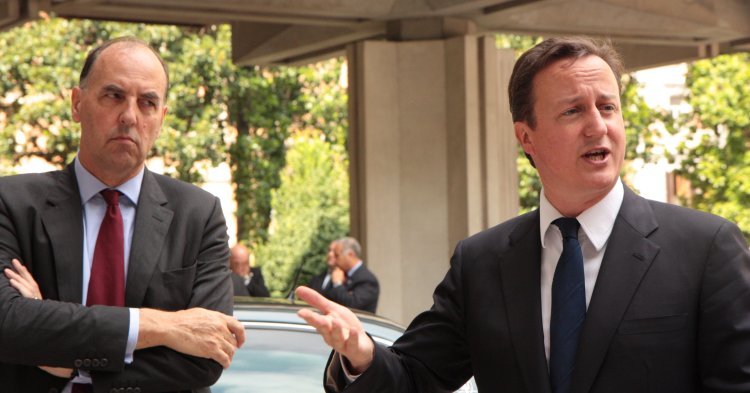A new step has been taken on Tuesday 10th November. In a highly symbolic letter addressed to Donald Tusk, president of the European Council, British Prime Minister David Cameron sets out the necessary conditions for Britain to eventually remain in the European Union. This occurs in a particularly tense context for the Union, which finds itself under attack on multiple fronts due to the separatist wishes of Catalans and Scots, the migration crisis, and the plan for a referendum on British membership of the Union which could take place in Spring 2016.
Four demands for reform…
The demands of the British Prime Minister are articulated around four major issues: economic governance, competitiveness, sovereignty and finally immigration.
It is no surprise that Cameron’s proposals are resolutely free-market. In his opinion, the economic governance of the European Union has to be based on the national characteristics of each member state, starting with national currency. He thus argues in favour of a European Union with multiple currencies, where member states would not be discriminated on this basis. In the same context, he demands an enlargement of the single market which include the digital and services sectors, as well as a reduction of the existing regulations.
As for the subject of sovereignty, the proposals of the British Prime Minister are not surprising. It is a question of reinforcing the prerogatives of the national parliaments, in particular by allowing them to coalesce around a veto right against all European directives potentially hostile to national interests. Finally, in the area of immigration, Cameron limits himself to listing the dangers of unregulated intra-European immigration. Backed by statistics, he points out that the UK population keeps growing and will reach 70 million next year. With an average of 300,000 new entries into the British territory each year, he argues that this pace is “unsustainable” in the long term. From this point of view, he wants European migrants working on British soil to wait four years and satisfy an entry test before they can access the country’s welfare system.
In other words, Cameron calls for a reform of the existing European treaties to allow equality of treatment for countries in and out of the Eurozone; for more powers to national parliaments vis à vis the European Union; and finally for Brussels to look more kindly upon British immigration policy.
...which are however highly symbolic
Yet, these demands do not take the form of an elaborate project and they work more as proposals to establish common ground ahead of future negotiations.
If we are to believe some national newspapers this would be an internal political act aimed at stabilising the climate within the UK, rather than a statement intended for Europe. David Cameron’s political situation is indeed dangerous at the moment. With a small majority of only 12 MPs in Parliament, Cameron is prisioner of an openly Europsceptic conservative bloc formed by around 60 MPs. His margin for manœuvre is thus more than limited. This rather vague open letter could therefore be the ideal tool to attract the sympathy of the Eurosceptic fringe within the Conservative centre, and at the same time to gain time with Europe. All of this, surely, with an eye on winning the local elections in 2016.
Brussels’ lukewarm response
Brussels’ response on this subject has been understated, even though the proposed reforms have immediately been judged “highly problematic”. Generally speaking, Brussels fears that the British requirements could open the way to other national demands. The strategy employed by David Cameron could effectively allow him to gain the support of some Member States. For instance Poland, fearing being sidelined for not being part of the eurozone, could agree with Britain on this matter.
Towards a stronger Union
It is therefore clear that Cameron proposes a European Union which would exclusively rest upon… the sovereignty of Member States, at all levels: political, economic, and social. Once again, Europe seems captive of its old demons, divided by the terms of the old debate between the “Europe of the nations” and “federal Europe”. And yet, does the European Union not have the opportunity here to affirm its importance, both on the political and legal plans? The UK’s demands are a perfect opportunity to highlight the extreme importance of the Union in everyday life. The regulatory insularity that Cameron defends is in reality unsustainable in the long term, as demonstrated by the abundant literature on the subject. The debate around Brexit is equally an opportunity to finally clarify the UK’s position within the Union. Let’s remember that this is the result of opt-outs and half-hearted engagement with the European treaties: in 1983 Margaret Thatcher had already renegotiated the British deal, or more even recently, the refusal to sign the fiscal compact in 2011 had exempted [the UK] from the budgetary regime of the other Member States.
The European Union has to seize this opportunity to establish the basis for a political and legal union which engages, on an equal share, each of its member states.
The next decisive step in the negotiation should be defined at the European summit on 17th and 18th December, according to the British Minister for European Affairs, David Lidington.

Follow the comments: |
|
